I have seen dogs re-eat stuff that had more brains than some of the reviews of Suicide Squad. Review after review trots out half-baked considerations of plot or expectation. They say where their expectations aren’t met but I don’t think they could explain why they weren’t met. For example, they missed the centerpiece of the movie in its relationships and theme. This is basic stuff.
I won’t need a list of 10 for this, 8 is enough.
SPOILERS FROM HERE ON OUT
BLAME YOURSELF IF YOU SEE THEM
8. Reviewers keep asking where Batman, Wonder Woman, and the Flash are. Since the scene of Superman’s funeral time-stamps this movie, it seems they are away dealing with setting up the Justice League and trying to stop Darkseid.
And of the three, who would have called Wonder Woman? Most people probably don’t even know she exists? No one filed that last fight in Batman v Superman.
Who was to call Batman? Gordon uses the bat-signal, but I don’t think even Amanda Waller could have pressured him into making the call.
Superman, remember, is dead for the moment. The Flash is the occasional image. Cyrborg doesn’t seem to have a public contact point, and like Wonder Woman, possibly no one knows he’s around.
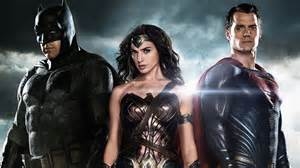
We’re off saving the universe from Darkseid so please don’t leave a message after the tone. . . BEEP
Likewise, Aquaman, who has shown himself to be unwilling to be called and willing to break your neck. Good attributes for someone who wants you to stay away.
7. Some reviewers say the main characters aren’t bad enough. DC pulls back from the fun of truly bad guys and just tells us these people are bad and don’t show us.
So what does the movie show us? Shooting someone dead for money, dragging someone into the water to eat them, injuring and mutilating people, robbing a diamond exchange and then killing their partner, seducing someone for self-advantage, seducing someone for self-advantage (happens twice), accessory to murder, mass murder, killing wife and children, killing their own henchmen, grave desecration, and convincing a teammate to get themselves killed. Apparently every single one of those scenes was forgotten by some reviewers.
Some reviewers don’t like that these characters have feelings. They should be badass bad guys. No feeling bad about killing your wife and children, like Diablo. Or Killer Croc, who turned bad just because he was picked on for being so ugly. Actually he was whipped with a belt – the bad end. It was more than pretty women refusing to date an ugly guy (that’s Mole Man, actually). It was violation of human rights.
The one who refuses to change is the one who has least reason to want to rejoin society (assuming that’s even possible). And nobody notices that Croc’s violence is directed at the villains of the movie and officialdom.
6. Captain Boomerang has a red beard. In fact his beard looks a lot like the beard of Henry Readford, who became the inspiration for the fictional character, Captain Starlight. Captain Boomerang is a stereotypical Australian who loves beer, is casual about sex or the likelihood of sex, and not minding a stoush (fight). Basically, the character’s a typical bushranger. No reviewers noticed any of this so now all Australia will hate these reviewers. One mention would have been enough (note that I just inoculated myself).
5. Reviewers haven’t liked the Enchantress’s magic, saying it looks unrealistic (seriously, compared to what?). But this overlooks one simple fact. Go see the movie again and look at her headwear. It’s a small point but a lot can hinge on this one point. Did you recognize any of the sigils of the planetary elements which are sitting right on top of her head, there? These people did the work, the reviewers didn’t.
Funny, in every single review (and I’ve been through loads of them) not once is this fact mentioned but it does show someone checked the background. I mean, the trailers come out and you notice the military signal on the wall, but this rather obvious point you miss. Then again, no one noticed how much the Enchantress is dressed like the Machine Man made to look like Maria in 1929’s Metropolis (the movie that rules the world).
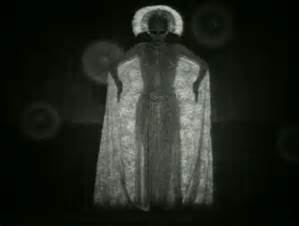
The Enchantress, who wants to destroy the world because those who worshipped her now worship machines.
In this scene, the woman who leads the workers in revolt against the machines has been replaced by a robot in disguise.
Their outfits are very similar, too.
Yet another movie with something inspired from Metropolis, in this case giving away the Enchantress’s motivation.
And while we’re at it, when Moon calls out the Enchantress, that is one of the coolest special effects going. By all the Gods, they have got to use that one again, if only to make sure reviewers notice it.
4. Reviewers say the music changes with the introduction of each main character in the movie. They call this annoying and intrusive. I would call it an introduction to what’s going on in the character’s head. It’s not an introduction, it’s an insight.
Remember when Harley Quinn says she has voices in her head and they told her to kill everyone and escape? Then she says she’s kidding – that’s not what they really said.
Yeah, the reviewers love this funny joke but miss the foreshadowing it contains. It follows from the music and other things follow from it.
3. When Diablo confesses to everyone how he accidentally killed his family, he is telling everyone why his life will end the way it does. Very specifically. But what do reviewers say? That he’s given a talk about facing up to killing his family by Harley Quinn, of all people.
Did these reviewers notice that Harley Quinn also tells everyone in the bar he killed them in the first place? Is she telepathic?
No, she’s a psychiatrist. It’s part of the background of the character. She figured it out, she told everyone, and then she gave him some psychotherapy. What’s wrong with that? Especially given the big secret about her that not one reviewer seems to have noticed. But I’m going to wait a bit before I tell you that one.
As for Diablo, he tells people he killed his wife (whom he adored) and his children (loved them to bits) in a fit of anger. He was sucked into the power his power gave him.
Through the movie, Diablo is shown being able to produce small flames, control those flames to spell words, make images, make a little flame model of his wife dance in his hand, wipe out hundreds of enemies in one great flame-thrower-like burst (the evil Human Torch), and finally he turns into a 10-foot-tall burning monster able to go toe-to-toe with a world-wrecking ten-foot-tall wizard.
Sound familiar? Take out the flames and basically have the plot of Herakles (Hercules in Latin). He killed his family, had do the 12 labors. Eventually Herakles was poisoned. He couldn’t not die from it, so he told people to put him on his own funeral pyre and burn him to death.
Diablo faces the Enchantress’s brother, cannot allow himself to be defeated, so he calls for a bomb to be set off to kill him and the wizard.
Pretty direct parallels of plot and message, though Diablo is more a case of self-sacrifice and in that context more noble.
2. Did even one reviewer notice the theme of this movie? I haven’t found even one who mentions the overriding theme of this movie is redemption. Instead they miss the unifying factor and then say the movie isn’t unified.
Maybe that’s because this is not the simplistic redemption story you normally see in movies that reviewers praise. The movie centers on who gets redemption and who can’t get it in a world that itself is not redeemed.
The element of the unredeemed world is not new, it’s very old. But it’s applied in a very new way, here.
Basically everyone is looking for redemption except Killer Croc, who likes himself as he is (somehow). We get that in the bar scene.
These people try to get redemption through Amanda Waller. Remember her? She shoots in cold blood people who are helping her, then says they didn’t have clearance for the work they were doing.
What? They wouldn’t be doing that work if she hadn’t screwed up in the first place – anyone notice that? Any reviewer notice how often she screws up, because I haven’t found one.
She manipulates Rick Flag to watch June Moon (the other identity of the Enchantress) expecting them to fall in love. His redemption is getting his girlfriend back from the six-millennium-old witch. (Note: would you have called her a Scientologist or a Christian? Then why do Wiccans cop it?) He does this and if there are other movies (and there will be) I would think that issue of next to be redeemed will be raised.
Deadshot gains partial redemption one step at a time. I know a lot of reviews complain how much screen time Will Smith gets but it’s essential for his story. He begins by setting up a hit without you knowing what he’s doing. He could have put a bomb in that alley, but it turns out to be a simple metal plate.
He then waits for the target to show up and forces the guy hiring him to pay in full in advance, then, because the guy was a sphincter (you know which one) he makes him double the payment. $2,000,000.00 in the bank and he fires one shot, it bounces off the metal plate, the guy is dead, and some organized crime boss gets away with whatever he did. Again, people take this as a joke but there’s a lot of screen time spent on one point: Deadshot plays serious hardball and doesn’t care about almost all people.
Later scene, he then walks with his daughter. Like Diablo, he loves his kid but keeps her from being made into bits. He drew a line in a way Diablo did not.
Deadshot is confronted by Batman. Because his daughter’s there, she calls him back from the brink. Not one reviewer has asked why Batman endangered this child. Since Batman always has a plan in mind, do you clever reviewers know what it is?
I think we have started a long trek for Deadshot.
Once in prison, we see Deadshot keeping fit and angry. He is treated brutally and returns the favor and there is no indication he doesn’t deserve this. Then we get to see him crawl up the moral slope, staring with showing skills that are themselves a super power.
Seriously, he never misses? He drills metal targets – they’re metal so you can see his bullets hitting the same place until there is a single hole in each. If you put a gun in a vice and tried that, it wouldn’t work. Especially with the handguns he starts out with.
He then goes on, regularly announcing his intention to kill people. Over time, though, he changes. For all the reviewer declarations that there is no character arc in this movie, look at this guy.
Look at when he finds the briefing folder for the Suicide Squad. He doesn’t tell anyone that Flag was in it up to his hips with June Moon. Flag tells them that, himself, in his own confessional moment.
During the fracas, Deadshot “misses” for the first time ever. He is no longer a soulless killer and he no longer seeks redemption through Waller.
These people are lied to about what’s happening for almost the whole movie. Reviewers say it is yet another destroy-the-world plot. So, global warming isn’t going to destroy the world, neither is a meteor, neither is a boiling and roiling Middle East, neither are waves of refugees. Let’s face it, people are faced with the end of the world everywhere. It’s like the Great Depression or World War II, which appeared in movies all the time. The same thing happens now with the end of the world.
The Suicide Squad members start out not wanting to do this work. When they are briefed in full about the Enchantress and her brother, they get on with the job. The reviewers talk about how this is one fight after another – that’s called a war and the “big boss” fight at the end that no one likes is called taking the capital of the enemy.
And Deadshot? He goes straight on like a soldier with the soldier and the two of them aren’t that different any more. It’s the other side of the message of Man of Steel.
And in the end, Deadshot can see his daughter again and she understands who he is.
Deadshot has reached a kind of redemption, so have Flag and Moon, and Quinn is another story.
Themes, people.
1. Harley Quinn. Reviewers all say how she steals the movie and they liked her, so they were all watching her closely. So why did they miss it? Reviewers ask what part the Joker played in this movie, and how was the movie any different for him being here?
I’ve seen reviewers say her backstory is boring, we all know it and Amanda Waller just tells us the story again. Pay attention.
Did these reviewers look at the events on the screen? We see Dr. Harleen Quinzel providing therapy to the Joker. He asks her for a machine gun, which she provides. He then puts her on a table and has a pair of electrodes, the kind used for electroshock therapy. Here’s where a lot of reviewers complain: the Joker doesn’t frighten them and she eggs him on saying she can take it.
Since they complain about it, they saw it. She eggs him on for a reason, to make him do it.
He takes her to a chemical factory and gets her to jump into a vat of acid as an oath that she will live for him. The Joker is then going to leave when he stops, cricks his neck, and jumps into the vat. Did any reviewer notice that?
In Batman: The Animated Series and Amanda Waller’s voiceover, the Joker seduces Harley. In this movie, Harley seduces the Joker. As the voiceover says, she’s smarter than him.
Which would explain why in the scene in the club she mimes shooting people. The Joker winds up shooting someone.
Who’s controlling who?
So those complaining there isn’t a single well-thought-out origin story? It’s there, look at it again.
Some reviewers did manage to see the vat she fell in was labeled “ACID.” And some made jokes over the fact the liquid was white. What kind of acid is white? Kojic acid. Its major use is lightening skin color.
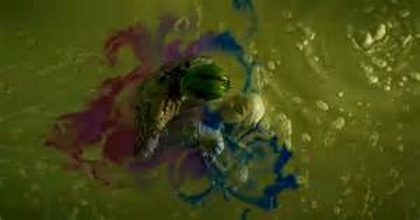
They fell into kojic acid, which is used to lighten skin. Bleach and other acids sometimes makes dark hair turn green.
Someone has figured out what was in that vat of chemicals the Joker fell into.
It can also turn dark hair green. Not so much blonde, apparently. And, by the way, only the tips of Harley’s hair are dyed. So she has to renew the dye because the color doesn’t extend from the roots. Why is this important? Because right at the beginning of the movie she still has those colored tips. This tells us right at the start she is loyal to the Joker.
As I write this, Rotten Tomatoes gives a 27% score for reviewers and 70% for audience. The audience has it right and I will trust reviewers less for at least the near future. Their bad reviews may have harmed the box office of this movie.
Ignore the 27%. Reviewers cannot claim insight into a movie when they have so clearly failed to understand it.

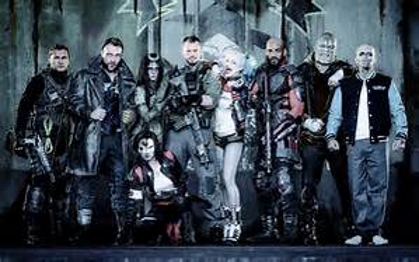
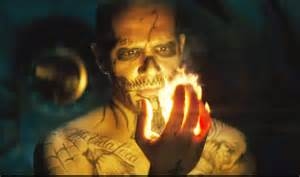
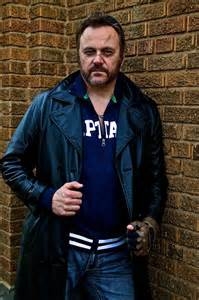
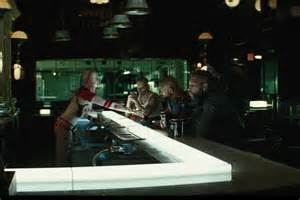
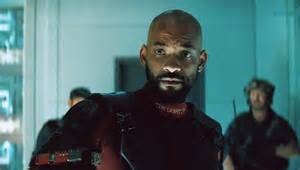
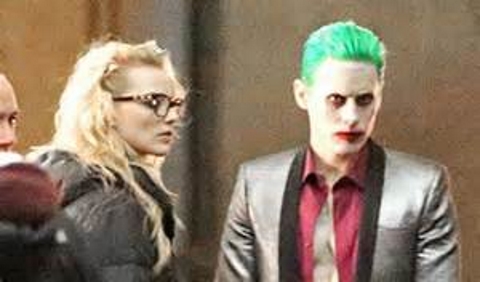
Comments are closed.